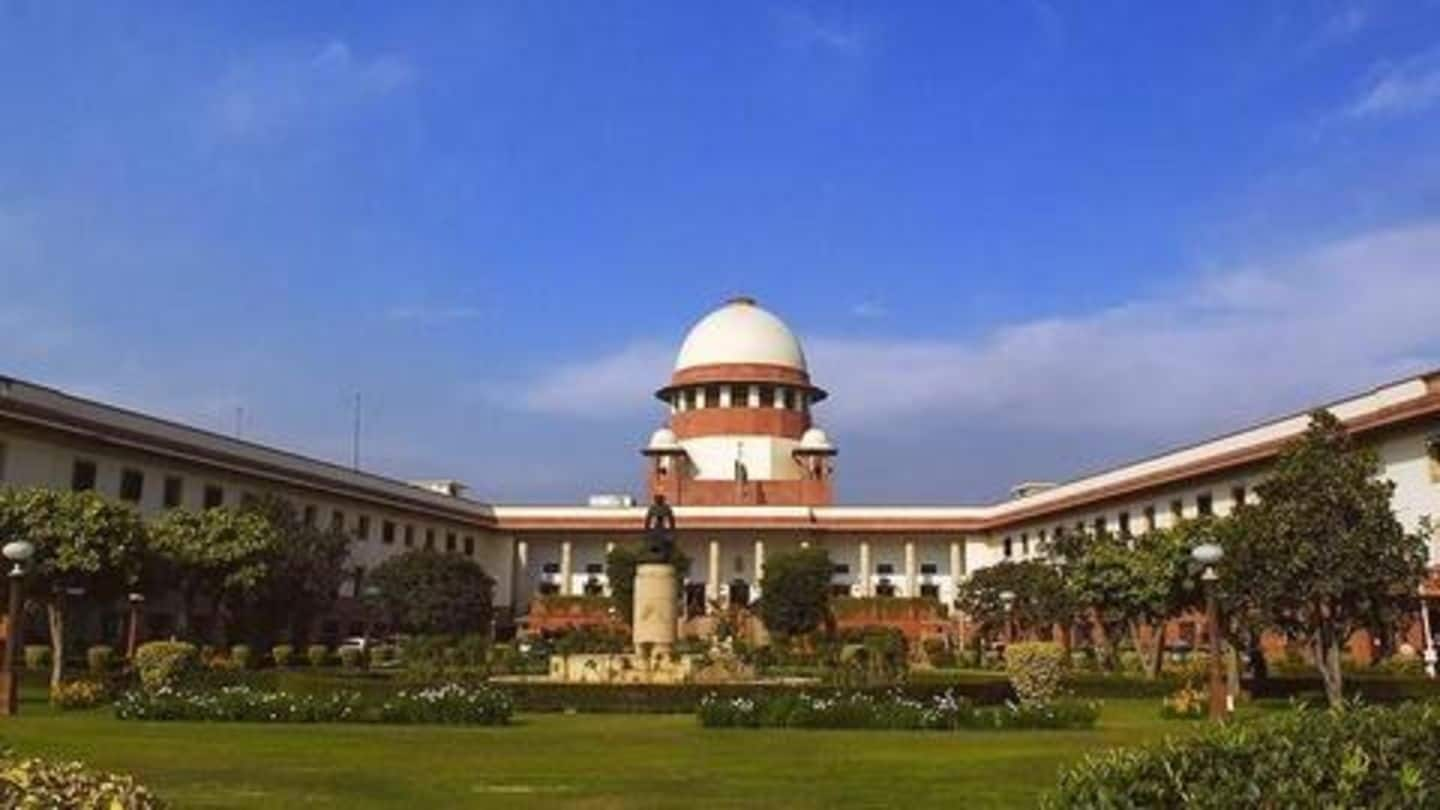
#AyodhyaDispute: CJI Gogoi reconstitutes Ayodhya bench; hearing on 29 January
What's the story
The Chief Justice of India, Ranjan Gogoi, has reconstituted the bench hearing the politically sensitive Ayodhya case by inducting Justices Ashok Bhushan and Abdul Nazeer.
The Supreme Court on 10 January adjourned hearing in the Ram Janmabhoomi-Babri Masjid land dispute after Justice UU Lalit, one of the judges on the Constitution Bench, recused himself.
The case will be heard on 29 January.
Here's more.
Twitter Post
Justices Ashok Bhushan and Abdul Nazeer now included
Chief Justice of India Ranjan Gogoi reconstitutes Ayodhya bench, Justice Ashok Bhushan and Justice Abdul Nazeer now included. The case will be heard on January 29. #SupremeCourt pic.twitter.com/7wuQz5O93s
— ANI (@ANI) January 25, 2019
Details
The five-judge bench hearing Ayodhya case
The five-judge bench hearing the Ram Janmabhoomi-Babri Masjid case also consists of Chief Justice Gogoi, Justice SA Bobde, and Justice DY Chandrachud apart from Justice Ashok Bhushan and Justice Abdul Nazeer, who have been added to the Ayodhya bench today.
While Justice UU Lalit had recused himself from the matter, Justice NV Ramana has reportedly been excluded from the new bench.
5-judge bench
CJI set up a five-judge bench on 8 January
A bench comprising CJI Gogoi and Justice SK Kaul, had on 4 January, stated that a new appropriate bench will be set up to hear the Ayodhya case.
On 8 January, the CJI set up a five-judge Constitution Bench led by him and comprising Justices SA Bobde, NV Ramana, UU Lalit, and DY Chandrachud to hear the Ayodhya land dispute case from 10 January.
What happened
SC adjourned hearing on 10 January; Justice Lalit recused himself
However, on 10 January, the Supreme Court adjourned the Ayodhya case for January 29 after Justice UU Lalit opted out of the matter.
This came after senior counsel Rajeev Dhavan, representing a Muslim litigant, pointed out that Justice Lalit previously appeared for one of the parties.
Justice Lalit represented former Uttar Pradesh CM Kalyan Singh in a Babri Masjid-Ram Janmabhoomi dispute-related matter in 1997.
Information
14 pleas filed in SC against 2010 Allahabad HC verdict
The reconstituted Ayodhya bench will hear a batch of petitions challenging the Allahabad High Court's 2010 verdict in the Ayodhya case. As many as 14 pleas have been filed in the SC against the Allahabad HC's judgment in four civil suits in the Ayodhya matter.
2010 verdict
The 2010 Allahabad High Court judgment
The Allahabad High Court in 2010 had ruled that the disputed 2.77-acre land in Ayodhya be divided equally among the three parties: Ram Lalla (represented by Hindu Maha Sabha, for the Ram temple construction), the Sunni Waqf Board, and Nirmohi Akhara.
However, all the stakeholders had rejected this verdict by the Allahabad HC and appealed in the Supreme Court.
About
A little about the Babri Masjid-Ram Janmabhoomi dispute
On 6 December 1992, thousands of right-wing activists razed down the Babri Masjid, claiming that it was built on a temple; this temple had special significance as it was considered the birthplace of Lord Ram.
Since then, the 16th-century site has been disputed.
After the Babri Masjid demolition, the country had witnessed Hindu-Muslim riots that killed about 2,000 people.